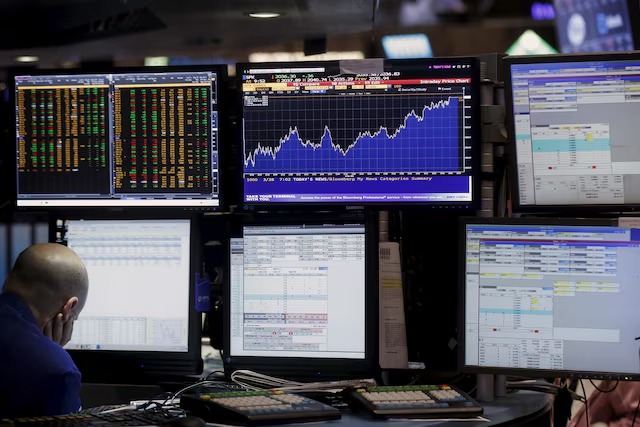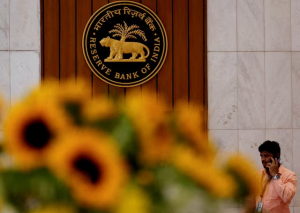Investors are bracing for a knee-jerk selloff in stock markets on Monday after the weekend's U.S. attack on Iran raised the specter of retaliation and higher oil prices. The Middle East situation takes center-stage for markets, overshadowing U.S. economic data releases this week, as investors assess the impact of President Donald Trump's sudden decision to join Israel's military campaign against Iran on sentiment, inflation and interest rates. The Reuters Tariff Watch newsletter is your daily guide to the latest global trade and tariff news. Sign up here. Advertisement · Scroll to continue
Report This Ad Trump called the attack "a spectacular military success" in a televised address to the nation and said Iran's nuclear enrichment facilities had been "obliterated". He said the U.S. military could go after other targets in Iran if the country did not agree to peace. Iran said it reserved all options to defend itself, warned of "everlasting consequences", and stepped up its strikes on Israel. "It’s hard to imagine stocks not reacting negatively and the question is how much. It will depend on Iranian reaction and whether oil prices spike," said Steve Sosnick, chief market strategist at Interactive Brokers in Connecticut. Advertisement · Scroll to continue
Report This Ad "Really what we’re looking at is secondary order effects – the price of oil, market stability, price hikes through the economy. No globally important stock is directly affected by what happened tonight.” The S&P 500 (.SPX), opens new tab is hovering just below its February highs but has rebounded sharply from its early-April selloff, as tariff-related tensions have eased. However, the U.S. benchmark index appears to be taking a breather at some 2.7% below its February closing high. The index has gone 27 trading sessions since coming within 5% of its February high but has not yet set a new record. The Israel-Iran conflict has already sent oil prices sharply higher and led to caution in markets. So far, the oil market has absorbed most of the impact from geopolitical turmoil, with equities relatively stable. Yet stock investors remain concerned that higher oil prices could stoke inflation and upset plans for interest rate cuts from the Federal Reserve. U.S. stocks finished mixed Friday in choppy trading with the Dow rising marginally while the S&P 500 fell two tenths of one percent and the tech-heavy Nasdaq declined half of one percent.
On Wednesday, the Fed held rates steady and policymakers signaled borrowing costs are still likely to fall this year. But they estimated the overall pace of expected future rate cuts would be slower than they saw at their March meeting. They cited expectations that higher inflation would flow from President Donald Trump's tariff plans. "The question is oil prices and what that does to inflation – which has implications for monetary policy and how long the Fed keeps rates "meaningfully restrictive"," said Sonu Varghese, global macro strategist at Carson Group. While investors expect the Middle East tensions to spur a near-term bout of nervousness in stock markets and a rush to safer assets such as the dollar and Treasuries, some also envisage a de-escalation in the situation. "I think it’s going to be very positive for the stock market," said Mark Malek, chief investment officer of Siebert Financial, referring to how investors had been primed for two weeks of uncertainty based on White House statements that Trump would take that long to decide on his next move.
"So this will be reassuring, especially since it seems like a one and done situation and not as if (the U.S.) is seeking a long-drawn out conflict." Investors will also parse a slew of incoming data releases, including U.S. business activity and housing sales on Monday, consumer confidence numbers on Tuesday and the PCE Price Index on Friday. U.S. consumer confidence plunged in the past few months, with households fearing tariffs could prompt a recession and higher inflation. However, with inflation in check and the U.S. reaching a truce in its trade fight with China, investors were expecting to see a pickup in sentiment. "Remember, the survey-based data all got crushed in the March, April, May time frame ... my expectation is we're still going to see an improvement," Mark Hackett, chief market strategist at Nationwide said before the U.S. struck Iran. Reporting by Saqib Iqbal Ahmed and Suzanne McGee; Editing by Alden Bentley, Vidya Ranganathan, David Gregorio, Susan Fenton and Sonali Paul













